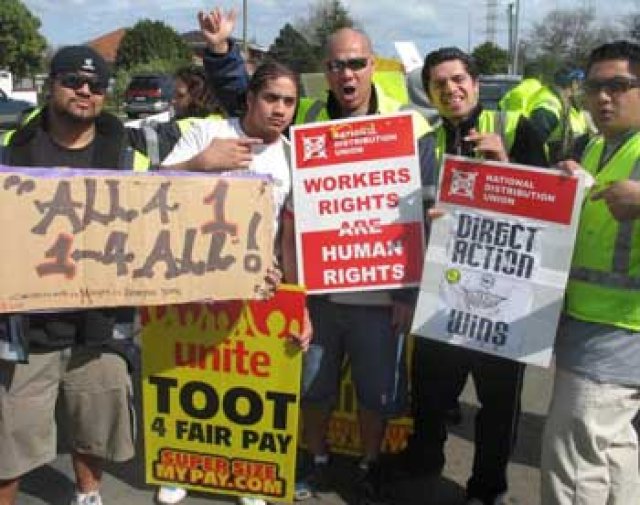
New Zealand’s National Party-led government announced on July 18 a law that would allow bosses to fire new workers at will, restrict access to unions, cut workers’ entitlements to sick leave and holidays, and remove the right to appeal against unfair sackings. On August 21, unions will respond with rallies across the country.
The two most significant aspects of the government’s plans are the extension of 90-day “trial period” and a requirement for union organisers to gain permission from employers before visiting union members or potential recruits on the job.
The extension of the 90-day trial period has been dubbed the “fire at will” law by unions. No reason needs to be given and there is no right of appeal and no compensation for the worker. The policy was first introduced last year, but applies only to businesses with fewer than 20 employees.
A survey commissioned by the Department of Labour, and used by the government to promote its plan to extend the law to all employers, found that 22% of those hired on 90-day trials were fired. In contrast to claims by ministers, the study concluded that it “cannot be stated categorically that trial periods had created extra job opportunities”.
The right of unions to “access” workers on the job was one of the few significant improvements to employment laws introduced by the 1999-2008 Labour-led government.
Labour’s Employment Relations Act (ERA) replaced the anti-union Employment Contracts Act (ECA), but kept most of its restrictions on workers right to strike. At the time, one union official described the ERA as “the ECA with right of access”.
Introduced alongside savage social welfare cuts at the height of the 1991 recession, the ECA devastated the New Zealand union movement. Membership dropped from around 40% of workers to well under 20%, mostly in the public sector. This collapse in workers’ organisation is a factor in the 25% wage gap between New Zealand and Australia.
The right of union organisers to go on to a job and talk to potential members has been crucial in high-profile efforts to unionise workers in low-paid service industries like fast food, retail and cleaning.
These campaigns — and some significant pay rises won by well-unionised workers such as nurses, teachers and engineers — have led to a modest recovery in union membership over the past six years. These new laws would reverse that recovery.
Unemployment has hit an unexpected high of 6.8% and the government is set to announce new “beneficiary bashing” measures.
So far, small protests have been called around the country, and the Council of Trade Unions has called the August 21 rallies. Even traditionally conservative unions are encouraging their members to take part. The size of these protests will largely determine what the next step of the campaign will be.